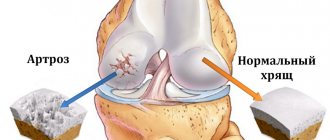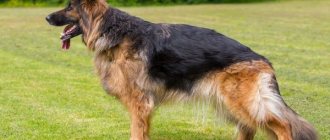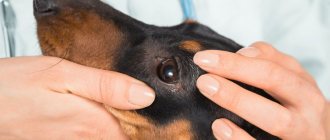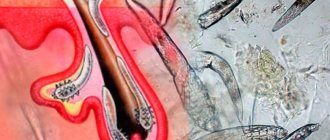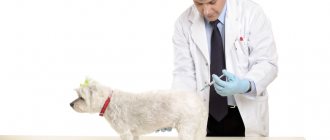There is so much information about vaccination on the Internet that it can be difficult for owners to understand all the nuances on their own: how to prepare a baby for vaccination, which vaccine and regimen to choose, whether it is necessary to vaccinate adult dogs, what diseases can be protected from a pet, how dangerous and justified it is. And also answers to many other questions about vaccinations for dogs.
Vaccination is especially important for puppies up to one year old.
How the vaccine works
A small amount of virus or bacteria is injected with the vaccine. This stimulates the immune system, and it begins to produce specific antibodies. The next time they encounter an infection, they will immediately react and fight the pathogen. The disease can be avoided altogether or it will occur in a mild, and sometimes hidden, form.
Vaccination itself cannot cause infection, because killed or inactivated viruses and bacteria enter the body. But, if the animal is already infected and is in a state of “fragile equilibrium,” vaccination can actually provoke the rapid development of the disease.
Dog vaccination
A timely vaccination given to your dog will not only preserve its health, but will also prevent a number of diseases in the household. In addition, by spending some time and money on a preventive injection, the owner will save himself from possible large expenses in the future if the pet suddenly “catch” the infection. In order for your dog’s vaccination to be successful and have only a positive effect on the animal’s body, you need to know when and what vaccine to give, and to properly prepare your pet for the procedure.
Preparation is a mandatory step
The vaccination is given to healthy animals (without any signs of disease and temperature within normal limits: 37.5-39°C - for adult dogs and 37.5-39.5°C - for puppies), which have been treated against external (fleas) , ticks, lice eaters) and internal (helminths) parasites. All these “uninvited guests” weaken the body and reduce immunity. As a result, after vaccination, an insufficient level of antibodies is produced, immunization is incomplete. In addition, parasites are carriers of various diseases, which up to a certain point can occur in a latent form.
Sometimes veterinarians prescribe a complete blood test. It allows you to objectively judge the dog’s readiness for the procedure. In practice it is rarely used. The patient is assessed only visually and according to the owner.
When to treat for parasites
Puppies are first dewormed at 3 weeks of age (21 days). Even if the baby has never been outside, there is always a chance of infection (in utero and from the environment). Helminth eggs can be brought into an apartment with shoes or on the mother’s paws from the street. It is more convenient to use suspensions for processing. The repeat is done after 14 days, adjusting the dosage to suit the changed weight. It is imperative to give the puppy an anthelmintic before the procedure if you are not sure that the breeder carried out the necessary treatments.
It is recommended to treat the puppy against fleas 3-5 days before vaccination. But not earlier than 3 days after or before deworming. It is worth considering that most products are indicated from 7-10 weeks of age.
Adult dogs are treated for external and internal parasites several times a year. One of them should be 3-4 weeks before vaccination.
After vaccinations, the baby will be able to safely walk outside and explore the world around him.
Treatment for fleas, ticks and other external parasites
Various drugs are suitable for these purposes:
- sprays;
- drops;
- shampoos;
- collars;
- powders;
- solutions, etc.
Antiparasitic collars are not complete protection against fleas and ticks, but they perfectly complement, enhance and prolong the effect of the main drug. For this reason, it is advisable to combine several options for insectoacaricidal (antiparasitic) drugs.
Medicines are chosen individually, taking into account the composition. Different medications are used for puppies, adults and elderly pets. The dose is determined based on the weight and size of the pet.
You need to pay particular attention to the dosage when using anti-flea drops and sprays. Special shampoos, solutions and powders are easier to dose - no such precision is required.
The manufacturer indicates detailed instructions for use of each drug on the packaging, but there are general rules for all such drugs. It is necessary to ensure that the drug gets on the dog’s skin without remaining on the fur. Use medications against ectoparasites with caution in pets with skin lesions and other dermatological problems.
It is not advisable to pet or hug your pet within 12 to 24 hours after flea treatment.
Effective insectoacaricidal preparations are Advantix, Frontline, Kiltix, Hearts, Brovecto, Celandine, Dana, Bars and some other imported (Holland, Germany, Czech Republic) and domestic products.
First vaccination
The first vaccination is given to puppies at 7-10 weeks. With mother's milk they receive antibodies that protect them for about 1.5-2 months. This is called colostral immunity. A high level of maternal antibodies does not allow the puppies’ own immunity to work fully, and it still cannot. As a result, vaccination done ahead of schedule turns out to be ineffective and short-lived. Only Pappy will help protect babies up to 2 months of age.
Puppy vaccine Puppy: when and why to inject it
When puppies are kept in large nurseries or in the yard of a private house, where they can interact with foreign dogs, the risk of infection increases, but a full vaccination cannot yet be done. In such cases, veterinarians recommend “puppy”, for example, Nobivac Pappy, it provides protection against distemper and parvovirus enteritis, common infectious diseases with high mortality among puppies, but does not contribute to the development of their own immunity.
Vaccinations for adult dogs
It is necessary to vaccinate not only puppies, but also adult dogs; they also need protection from infections. The vaccination schedule for an adult animal recommends an injection every 12 months. It is necessary to vaccinate against rabies every year, and other types are allowed to be administered once every 2-3 years, but this is subject to the absolute health of the dog. Rabies vaccination is often included in a comprehensive vaccination program.
When a dog reaches 8 years of age, mandatory vaccinations depend on its health. If your pet has chronic diseases, you can refuse vaccination, as it can only worsen the dog’s condition. However, the owner does not have the right to refuse rabies vaccination, as this is prohibited by law.
Second vaccination
Revaccination is done after 3-4 weeks. It is necessary to achieve maximum effect. Repeated administration of the complex allows you to reliably consolidate the immune system’s response to certain pathogens. It can be supplemented by rabies if the puppy is planning to participate in exhibitions, fly, or move.
You should not delay the first vaccination, otherwise revaccination will occur during the period of teeth change, and at this time the puppy’s body is weakened and the effectiveness of the procedure is questioned.
Contraindications to vaccination
Not all dogs are eligible for routine vaccination. Among the contraindications it should be noted:
- feverish condition;
- acute diseases;
- 14 days before and after ear and tail docking;
- change of teeth;
- planned mating;
- severe weakening, exhaustion of the dog’s body (for example, after illness, surgery);
- pregnancy.
Is it possible to vaccinate pregnant and lactating dogs?
According to the rules, the procedure should take place no later than 2 weeks before mating, so that the dog can be prepared and not worry about it getting sick during pregnancy. In addition, puppies will receive maximum immune protection through the placenta and then through the milk.
A dog can be vaccinated in the first third of pregnancy (first 20 days) only with Nobivak or Eurikan vaccines. But she will no longer protect the puppies. If vaccination was not possible. You will have to wait until your pet gives birth and gets stronger, and then vaccinate her along with the babies.
The breeder often gives the first vaccination to puppies and the future owner does not have to choose a brand of vaccine, he repeats the same one according to the schedule
Caring for your dog after vaccination
Immediately after the first vaccination, the dog should be quarantined. It is very important to minimize the possibility of complications. Our goal is to minimize your pet’s contact with other dogs. The dog’s immunity immediately after vaccination is not yet at such a high level to protect it from infection with infectious diseases. The dog can be introduced to other dogs only a few days after the vaccine is administered. Avoid crowded trails and parks when you walk together.
© shutterstock
If you notice that your dog is having side effects from the vaccination, contact your veterinarian as soon as possible. Your dog may experience various types of skin changes, such as allergic reactions and irritations. Nausea and lethargy may also be side effects.
It is recommended to wait a little while bathing the puppy before the first vaccination. Then his immunity is very low, so the risk of catching a cold increases significantly. Therefore, if it is possible in his favor, let's postpone bathing the dog for a few days. This way we allow his immune barrier to open up freely.
Prevention of post-vaccination complications
Unfortunately, no one is immune from these, and no vaccine can guarantee 100% safety. But not vaccinating at all is very dangerous. To minimize the risk of complications and strengthen immunity during vaccination, the veterinarian may recommend the drug Evinton and, of course, strict monitoring for 2-3 days after vaccination.
If the dog had an extremely difficult time with the next vaccination, it makes sense to choose a drug from another manufacturer. You need to wait for the next scheduled vaccination date and get a new vaccination twice, with an interval of 3 weeks.
Quarantine
Immunity is not developed instantly, only after 14-21 days, but full-fledged immunity 10-14 days after revaccination. Until this time, the weakened body is unable to cope with infections that occur on the street. You can walk with your baby in the courtyard of a private house, but it is absolutely not recommended to visit places where dogs gather. It is also worth holding off on swimming and physical activity.
Adult dogs do not need to adhere to such a strict quarantine. However, in the first 10-14 days it is recommended to reduce the time of walking, limit contact with other people’s animals and dirty objects, and avoid stress and freezing.
Puppies can safely communicate with other dogs and walk in the park 2 weeks after revaccination
Treatment for worms
Anthelmintics are available in different forms:
- pills;
- capsules;
- suspensions;
- powders.
Regardless of the type of medication, the dose is calculated based on the dog's weight. The drug is given on an empty stomach in the morning before the first feeding. On the day of deworming treatment, the pet is not fed dairy products. Typically, 1 tablet is designed for 10 kg of dog weight, but for convenience, many manufacturers produce drugs designed for 0.5 - 2 kg, 20 kg, 40 kg of live weight and similar dosages.
It is important to provide your dog with enough clean water. After taking the medicine, you need to monitor your pet’s well-being. Sometimes there is lethargy, drowsiness, and in some cases vomiting. This effect is not provided by drugs; this condition of the pet occurs if the dog has been infected with worms and they, having died, will be excreted from the body. If symptoms do not go away within a day, you should take your dog to the doctor.
There are many different anthelmintics; it is useful to consult a veterinarian to help you decide on your choice. The best anthelmintics are Drontal, Kaniverm, Kanikvantel, Prazitel, Prazitsid, Profender.
Do not use anti-worm medications for pregnant or lactating bitches or weakened dogs. Also, some active ingredients are contraindicated for representatives of the Collie, Shetland Sheepdog and Bobtail breeds.
Fleas are carriers of worm eggs, so it is important to follow the sequence of treatments - first drive away external parasites, then internal ones.
Otherwise, repeated helminthic infestation (infection with parasites) may occur and treatment will have to be carried out again, which is an extra burden on the pet’s body and an unnecessary waste of time.
What diseases can you protect your dog from?
Dogs can be vaccinated against more than 10 diseases. This list includes basic (mandatory) and additional (entered as necessary). On imported vaccines, the names of the diseases from which it protects are indicated as an abbreviation (the first letter of the Latin name).
Basic vaccination (+ explanation):
- D (Distemper) - plague of carnivores;
- H (Hepatitis infectiosa) - infectious hepatitis;
- P (Parvovirus enteritis) - parvovirus enteritis;
- PI (Parainfluenza) - parainfluenza;
- L (Leptospirosis)—leptospirosis;
- R (Rabies) - rabies.
Additional:
- Coronavirus enteritis;
- Dermatophytoses (trichopytosis, microsporia);
- Bordetellosis;
- Borreliosis;
- Piroplasmosis.
Imported vaccines are more popular among dog lovers. It is believed that they “break through” (i.e. the dog gets sick, despite the vaccination) less often than domestic ones.
Your individual vaccination schedule
To view your dog's vaccination schedule, enter its correct date of birth:
| Dog age | approximate date | Vaccine, procedure |
| 1 month (4-6 weeks) | ___.___.___ | Nobivac Puppy DP (sometimes they don't make it) |
| 2 months (8-9 weeks) | ___.___.___ | Nobivac DHPPi Nobivac Lepto |
| Within 10 days | Quarantine! | |
| 2.5-3 months. (11-12 weeks) (before teeth change) | ___.___.___ | Nobivac DHPPi Nobivac Lepto Nobivac Rabies* |
| Within 10 days | Quarantine! | |
| ___.___.___ | You can start walking! | |
| 6-7 months (after a complete change of teeth) | ___.___.___ | Nobivac DHPPi Nobivac Lepto Nobivac Rabies |
| Annually | Nobivac Rabies | |
| 1 year and beyond – annually | ___.___.___ | Nobivac DHPPi Nobivac Lepto |
Decoding of Latin characters in vaccine names: D
– against the plague;
H
– against viral hepatitis;
P
– against parvovirus enteritis;
Pi
– against parainfluenza;
L
– against leptospirosis;
R
– against rabies. * You don’t have to do Rabies within the specified period if you don’t plan to: communicate with dogs and travel abroad.
only get an official rabies vaccination
in specialized state veterinary clinics!
Source
Which vaccine to choose
Below is a brief overview of the most popular brands. The description includes a list of available vaccines, their pros and cons, recommended vaccination schedule and prices (average cost in pharmacies excluding veterinarian services).
Nobivac
A series of vaccines produced by MSD Animal Health (formerly Intervet), the Netherlands. It is considered one of the best, which is supported by its international recognition.
Manufacturer's recommended vaccination schedule:
- 2-6 weeks ― Nobivac KC for a high risk of infection with bordetellosis and parainfluenza (RUB 680)
- 4-6 weeks ― Nobivac Puppy DP+Nobivac Diluent (300 RUR)
- 8-9 weeks ― DHPPi+L/LR in regions unaffected by rabies with a high risk of infection (480 rub.)
- 12 weeks (revaccination) - DHPPi+LR (480 rub.)
- 1st year - DHPPi+LR (480 rub.)
- Then every 3 years (4th-7th-10th) - DHPPi+LR (480 rubles) or DHPPi+L4+R (620 rubles). Some doctors, based on data on the epizootic situation, recommend complex vaccination with DHPPi + LR annually.
- Annually, according to the manufacturer’s scheme, it is recommended to introduce L4 (195 rubles) and KC (680 rubles)
As for the Nobivac KS vaccine, many call its annual use a marketing ploy. If early protection of puppies from these infections is justified in some cases, then adult dogs rarely tolerate kennel cough with complications, moreover, the DHPPI complex already includes the causative agent of parainfluenza, only without Bordetella.
Pros:
- High efficiency.
- International recognition.
- Protection against major infectious diseases.
- Safe for use on puppy dogs according to instructions.
- Promotes the development of lasting immunity after 2 weeks. after vaccination.
Minuses:
- Presence of fakes on the market.
- Price.
Nobivac Diluent is a diluent for dry vaccines (Puppy/DHP/DHPPI2). Not used if DHP/DHPPI2 is dissolved by Nobivac L or Nobivac RL
Eurican
The second most popular imported vaccine is produced by Merial, France. The only line that contains a vaccine against the herpes virus. Used to protect newborn puppies from infection. It is done to bitches before mating or before the 10th day of estrus, and then 10 days before the expected date of birth.
Manufacturer's recommended vaccination schedule:
- 6 weeks – Eurikan Primo (325 rubles) If the risk of infection is high, the first vaccination is carried out at 4 weeks, followed by revaccination at 6 weeks.
- 7-8 weeks – Eurikan DHPPi2-L (435 RUR)
- 12 weeks – Eurican DHPPi2-LR (490 rubles) or Eurican DHPPi2-L and Rabizin (435 rubles + 140 rubles) subject to their sequential use in different syringes.
- 15 months and then annually - Eurikan DHPPi2-LR (490 rub.)
Pros:
- High efficiency.
- Protection against major infectious diseases.
- Forms stable immunity 14 days after vaccination.
- Possibility to vaccinate puppy bitches according to the instructions.
- Availability of a vaccine against herpes virus infection.
Minuses:
- Lack of puppy vaccine against canine distemper.
- Price
You cannot give the first vaccination from one manufacturer and revaccination with a drug from another.
Vanguard
A series of vaccines produced by the American company Zoetis. The name does not contain an abbreviation indicating the disease, only a number that indicates the total number of pathogens in the composition. Today there are 2 polyvalent vaccines in the line:
- Vanguard 5Cvl - prevention of plague, infectious hepatitis, parvovirus and coronavirus enteritis, adenovirus, parainfluenza, leptospirosis in dogs.
- Vanguard 7 - prevention of plague, infectious hepatitis, parvovirus (types 2, 2a, 2b and 2c) and coronavirus enteritis, adenovirus, parainfluenza, leptospirosis in dogs.
- Defensor 3 - prevention of rabies, used from 3 months.
Vaccination schedule:
Vanguard 5Cvl (350 rub.) or Vanguard 7 (370 rub.) Injected twice at 8 and 12 weeks. Or three times at 5, 8 and 12 weeks. Then revaccination is repeated once a year with one dose.
Rabies is vaccinated separately with the Defensor 3 vaccine (180 rubles) from 3 months of age, followed by revaccination every year. Then once every 3 years or once a year (in disadvantaged areas)
Pros:
- If there is a threat of infection, it is allowed to vaccinate puppies from 5 weeks.
- High efficiency.
- Price
Minuses:
- Early vaccination requires three doses.
- The need to inject rabies separately.
None of the Vanguard polyvalent vaccines contain rabies.
Biocan Novel
Popular vaccine from the Czech company Bioveta. Biocan Yovel is an improved version of the Biocan vaccine by the manufacturer, which is practically no longer found on the market. The line includes many poly- and mono-vaccines, but not all of them are registered in the customs union.
Vaccination schedule:
- 5-6 weeks Biocan Puppy (RUB 215)
- 7-8 weeks Biocan Puppy (RUB 215)
- 8-10 weeks Biocan DHPPi/L (RUB 235)
- 12-16 weeks Biocan DHPPi/LR (280 RUR)
- Then annually DHPPi/LR (280 rub.)
Preparations for additional vaccination:
- Biocan M plus – against microsporia, from 8 weeks,
- Biocan B – against borreliosis, from 12 weeks,
- Biocan T – against tetanus, from 12 weeks.
- Biocan C - against coronavirus infection, from 12 weeks.
Pros:
- Price
- Wide range of vaccines
Minuses:
- Lots of negative reviews about low efficiency
- Hard to find in pharmacies
Biocan has the widest range of vaccines, but not all of them are imported to Russia
Multikan
Domestic multicomponent vaccine, Moscow. For dogs, the manufacturer offers four vaccines, which differ in the number of diseases. Immunity is formed in 2-3 weeks, the antibody titer remains for 6-8 months in puppies and 12-15 months in adult dogs.
- Multikan-4 - plague adenovirus, parvovirus, coronavirus. (180 RUR)
- Multikan-6 - plague, adenovirus, parvovirus, coronavirus and canine dermatomycosis. (230 rub.)
- Multikan-8 - plague, adenovirus, parvovirus and coronavirus enteritis, leptospirosis and rabies. (360 rub.)
Vaccination schedule:
- Multikan, suitable for the number of diseases, is administered twice every 8-10 weeks. and after 21-28 days.
- Revaccinate at 10-12 months.
- Next, dogs are vaccinated once a year with Multican 8.
1 dose of Multikan is equal to 2 ml. The drug is administered only intramuscularly. Dogs weighing less than 5 kg are injected with half the dose - 1.0 ml.
Pros:
- Price
- additional protection against dermatomycosis in multikan-7
- Possibility of using Golobkan-5/Giskan-5 to protect puppies.
Minuses:
- Different dosage depending on weight.
- Veterinarians recommend using imported analogues for miniature breed puppies.
- Injected only intramuscularly
In addition, the vetbiohim company produces:
- Vakderm is a vaccine against dermatomycosis (trichophytia, microsporia). Used for therapeutic and prophylactic purposes.
- Rabix is a monovalent vaccine against rabies.
- Serums Giscan-5 and Globcan-5 are used for early prevention and treatment of five infectious diseases.
In defense of domestic vaccines, it can be said that they have been actively used by veterinarians for many years and fail much more often than their analogues.
First and second vaccinations for puppies up to one year: scheme, price, when can they go for walks and other questions
Attention! Due to the coronavirus epidemic, there are now interruptions in the import of vaccines to Russia. The Constellation veterinary center has all the necessary vaccines: Eurikan DHPPi2-L, Eurikan DHPPi2-LR, Nobivak DHPPi / R and others
Immediately after the puppy arrives at your home, we recommend contacting a veterinary clinic to evaluate its health. It does not matter whether the puppy was purchased from a breeder, taken from friends or from a shelter. Only a veterinarian will be able to see hidden signs of the disease.
During a visit to the veterinary clinic, the doctor will learn more about your pet and select the most optimal vaccination schedule specifically for your puppy.
Be careful if you adopt a puppy that has not completed its primary vaccination course (that is, younger than 3 months). Remember that your puppy will not be fully protected until the primer vaccination is completed correctly.
What you need to know about puppy vaccinations?
For comprehensive vaccination of a puppy, you need to schedule 2-3 visits to the veterinary clinic with an interval of 3-4 weeks. If you miss or do not follow your vaccination schedule, you may need an additional vaccination to ensure full immunity is achieved.
It is impossible to shorten the interval between vaccinations; this will lead to the formation of a shorter and more intense immunity.
At what age are puppies vaccinated?
The first vaccinations for a puppy can begin at 6 weeks. At 7-8 weeks at least one vaccination should have already been carried out.
Puppy's first vaccination (optional, in the kennel)
The first vaccination for a puppy is usually carried out at 6 weeks while still in the kennel. This vaccination is not mandatory; it is given in nurseries to protect small puppies from parvovirus enteritis.
To vaccinate puppies at 6 weeks, use the Eurican Primo or Nobivak Pappy vaccines.
Second puppy vaccination (mandatory)
At 7-8 weeks, a second vaccination is carried out with a complex vaccine. This vaccination is aimed at protecting against parvovirus enteritis, plague, adenovirosis (infectious laryngotracheitis and infectious hepatitis), parainfluenza and leptospirosis. This vaccination may be the first one if the puppy was not vaccinated against parvovirus enteritis at the kennel at 6 weeks.
Third vaccination for puppy (mandatory)
At 12 weeks the third vaccination is carried out. A complex vaccine from the same manufacturer is used that was used during the second vaccination against the same diseases, but with the addition of an anti-rabies component.
Puppy's fourth vaccination (optional)
In rare cases (less than 5% of puppies), if immunity has not developed after vaccinations at 2 and 3 months, additional vaccination may be required at 16 weeks (4 months). The vaccine from the same manufacturer is used as at 2-3 months.
What vaccines are used to protect puppies?
We recommend using Eurikan, Rabizin and Nobivak vaccines for vaccination of puppies and adult dogs.
When can a puppy start going for walks after vaccination?
You've probably heard that the puppy needs to be kept at home to prevent a post-vaccination effect. The main question is how many days after vaccination can you walk your puppy? Different puppies develop immunity to different vaccines at different times. If everything is done correctly, then full protection against all diseases is formed 2 weeks after vaccination at 3 months (for components other than leptospirosis and rabies even earlier - usually 1 week after vaccination at 3 months). But this does not mean that you cannot walk your puppy until 14 weeks. Early puppy socialization is extremely important.
You can start walking puppies from 10 weeks, taking maximum precautions:
- DO NOT walk your puppy in areas where other dogs have marked territory or defecated.
- DO NOT allow your puppy to play with strange dogs. It doesn't matter how friendly they are
- DO NOT allow anyone you know to play with their dogs if their vaccinations are overdue.
- CARRY the puppy in your arms over those places where dogs defecated or marked territory (for example, all courtyards in front of multi-story courtyards are such)
Is it possible to let a puppy out into the courtyard of the house?
If you live in a private house, the yard is fenced and has sufficient sunlight, then the risk of infection is minimal and you can walk the puppy.
Why do puppies need quarantine for the first 2 weeks after vaccination at 3 months?
Despite the fact that immunity against most diseases develops faster, protection against leptospirosis and rabies, diseases dangerous for dogs and people, appears only 14 weeks after the course of primary vaccination.
What is the difference between the vaccination schedule for Yorkies, German Shepherds, Labradors, Spitz and other dog breeds?
There is no difference in the vaccination schedule, the diseases for which vaccination is carried out and the doses of vaccines administered. Breed makes no difference when choosing a vaccine.
Independent changes in the vaccination schedule, vaccine volume, vaccine components can lead to low post-vaccination immunity! Remember, puppies are the most vulnerable to infectious diseases!
Do puppies of decorative dog breeds (Yorkies, Toys, Spitz and others) need to be given half a dose of the vaccine?
No. The effectiveness and safety of vaccines has been tested on different breeds. The vaccine cannot be divided. A Yorkie or Spitz puppy does not need to be given half a dose, just as an Irish Dog, for example, does not need to be given 2 doses of vaccine at the same time. Administration of a half-dose of the vaccine can lead to insufficient immunity in the puppy!
Deworming puppies before vaccination
It is extremely important to deworm puppies regularly as they are the most susceptible to heartworm infections. 2 weeks before vaccination, it is necessary to carry out deworming if you have not followed the recommended regimen for treating the puppy against worms.
How much do puppy vaccinations cost?
The price of puppy vaccination consists of the cost of the vaccine and the cost of a doctor’s appointment, including examination of the animal and consultation with the owner. Prices for vaccination of puppies.
Vaccination schedule for puppies up to one year old (table)
Below is the classic vaccination schedule for puppies up to one year old. Vaccinations at 6 and 16 weeks are NOT mandatory and are required in individual cases. The vaccination schedule for puppies is determined individually for each puppy!
| 6 weeks | 8 weeks | 12 weeks | 16 weeks | 12 months | |
| Plague | X | X | X | X | |
| Parvovirus enteritis | X | X | X | X | X |
| Infectious hepatatitis and laryngotracheitis | X | X | X | X | |
| Parainfluenza | X | X | X | ||
| Leptospirosis | X | X | X | ||
| Rabies | X | X |
After vaccination at 12 months, dogs must be vaccinated annually.
In addition to the above diseases, there are vaccines to protect puppies against other diseases.
Canine herpes virus
To protect dogs from the herpes virus, Eurican Herpes is used. Puppy bitches are vaccinated twice every whelping.
Canine coronavirus
Canine coronavirus, unlike parvovirus, is not a serious disease and is easily transmitted by dogs. The International Association of Veterinary Doctors does not recommend vaccinating dogs against coronavirus infection, since no serious evidence has been provided regarding the effectiveness of these vaccines.
Piroplasmosis / babesiosis of dogs
To protect against piroplasmosis, dogs are vaccinated with Eurican Piro. The vaccination schedule for puppies consists of two vaccinations: at 5 and 6 months of age, then vaccination is carried out annually.
Why do you need a veterinary passport?
This is a small book that is sold in many veterinary pharmacies/clinics. Costs about 50 rubles. Data about the dog and all veterinary preventive measures are entered here: treatment, operations, vaccinations, treatments for parasites, etc.
Each vaccine has a label with an individual serial number and release date. It is pasted into the appropriate box in the passport. The doctor’s signature is placed next to it and all this is supported by his personal seal or the seal of the clinic. This is proof that the procedure was carried out, as well as a “reminder” of when to do the next one and which one.
A veterinary passport without stamps is not a document and cannot be presented at exhibitions, when moving, flying, or in the event of a dog bite (if it is necessary to prove that it does not have rabies).
Vaccination will help protect your pet from dangerous infectious diseases.
Do dogs need vaccinations?
Veterinarians unanimously say that yes - certain pathologies and diseases from dogs can be transmitted from dogs to humans, and can be fatal to them. So the plague can occur without pronounced symptoms and in the absence of appropriate measures, the results can be fatal. A disease such as rabies is also dangerous - the virus is dangerous for both dogs and humans, ending in death in some cases in the absence of prompt measures.
How much does vaccination cost?
Prices for preventive vaccinations for dogs vary depending on many factors:
- features of the vaccine (manufacturer, composition);
- vaccination location (home or clinic);
- pricing policy of the veterinary institution (budget, average, premium, luxury).
For example, giving an injection at home will cost 500 rubles more than if you bring your pet to the clinic. It will be more expensive to vaccinate a dog with an imported complex vaccine than a domestically produced one. On average, the cost of a comprehensive vaccination is about 1,500 rubles.
How to vaccinate correctly
In order for the vaccination procedure to have only a positive effect on the dog’s body and not lead to complications, you need to adhere to some rules.
- The dog must be completely healthy. Even the slightest malaise, lack of appetite, fatigue and other conditions are reasons for postponing the injection.
- Before vaccination, your pet must be dewormed. Anti-worm medication must be given 14 days before the procedure.
- It is not advisable to vaccinate dogs while they are changing their teeth. A number of drugs have the ability to change the color of tooth enamel.
- Vaccinations are not recommended for puppies under 8 weeks of age. Early administration of the vaccine will weaken the immunity acquired from breast milk. And since they don’t yet have their own, the puppies may be completely defenseless against infectious diseases.
- In addition to deworming, the dog must be treated for external insects. The treatment is carried out the same way two weeks before vaccination.
- Most vaccines have a negative effect on the development of the fetus, so if dogs are to be mated, the vaccine should not be given. At least 12 weeks must pass between vaccination and mating.
- It is best to vaccinate on an empty stomach.
- If your dog is prone to allergic reactions, you can first give it an antihistamine. Which one it is better to consult a doctor.
We should not forget that after vaccination, the pet may develop anaphylactic shock, so for the first few minutes you need to stay close to the veterinary clinic.
Where is the best place to vaccinate?
Many owners try to vaccinate their pet at home. On the one hand, the dog feels more confident, which has a positive effect on its health and ability to tolerate vaccination. However, there is a danger that the animal’s condition may sharply worsen, for example, due to an allergic reaction, anaphylactic shock, and then emergency veterinary care will be required.
It is best to bring your pet to the clinic, undergo a preliminary examination, get a vaccine and wait a while. You can walk around the clinic or sit in the car. After making sure that everything is in order with the body’s response, you can go home.
Any owner wants to see their pet healthy and cheerful. The key to such a dog’s condition is timely vaccination.
Source



